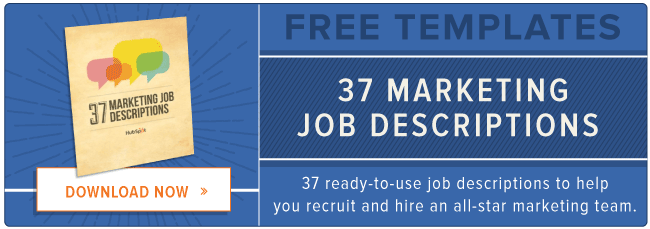 I've always been fascinated with the idea of emotional intelligence -- the ability to absorb emotional cues and use it to guide behavior. And the more time I spend in business (marketing and editorial, in particular) the more it's clear what a valuable asset this is in your employees and teammates.
I've always been fascinated with the idea of emotional intelligence -- the ability to absorb emotional cues and use it to guide behavior. And the more time I spend in business (marketing and editorial, in particular) the more it's clear what a valuable asset this is in your employees and teammates.
Think about how valuable it is when creating content, for example: Those who are able to empathize with their readers are able to think of hot topics, write in a way that draws on common experiences, and anticipate questions and hangups so they can address them in the writing.
Even if you're not in marketing or creating content on a regular basis, knowing the signs of emotional intelligence are critical for one more reason:hiring.If you want to build a team of people that are able to recognize and make choices based on their own emotions and those of their peers, you'll need to be able to screen for emotional intelligence alongside subject matter expertise and specific skill sets during the interview process. If you're wondering how you can identify an emotionally intelligent person (or whether you or your coworkers pass the emotional intelligence test), consider these common qualities.
A Quick Note on Emotional Intelligence
This is a cursory look into emotional intelligence and its role in the workplace, based largely (though not exclusively) on research from Salovey and Mayer, and Goleman, a few of the recognized leaders in this field of research. For a more in-depth look into emotional intelligence in the work environment, I recommend reading:
- 情商:它为什么可以那更为重要n IQ
- Working With Emotional Intelligence
- Emotional Intelligence: Key Readings on the Mayer and Salovey Model
1) An emotionally intelligent person iscurious...
About people he doesn't know, specifically. There's no "rational" reason to care about a complete stranger ... but you probably don't want to work alongside people that don't. That's because those who are curious about other people are typically more empathetic than their ambivalent peers -- another sign of high emotional intelligence.
One way to screen for it in an interview:
When you mention a project you're working on, does he ask specific and engaging follow-up questions, or does he just nod his head or say something generic?
2) An emotionally intelligent person isself aware...
One of the hallmarks of high emotional intelligence is not just the ability to recognize signals and emotions in others -- it's the ability to read ourselves with similar (or hopefully, greater) levels of depth and accuracy. Growing a self aware team can help teammates recognize where they can work together, make feedback easier to give and receive, and help everyone have a more trusting working relationship.
One way to screen for it in an interview:
When asking the typical "what's your weakness" question, ask him to explain ways he compensates for it. This indicates that he's thought at length about where he needs help, so much so that he's found ways to ask for it, work on improving, or find other support systems. That's a sign of someone that constantly self-evaluates, and can deal with what they uncover in the process.
3) An emotionally intelligent person isself motivated...
Self-motivated individuals are a treat to work with and manage. Because they're typically rewarded less by outside stimuli -- recognition, bonuses, promotions -- and more by their own goals and interests, they can handle disappointment and negative outcomes well due to their bigger-picture, long-term outlook.
One way to screen for it in an interview:
Ask her the last thing she taught herself. If she's self-motivated, she likely enjoys learning and education because she knows the fulfillment of self-improvement -- and is happy to lead the charge in that endeavor.
4) An emotionally intelligent person iswell-liked...
Let me be clear: Not everybody needs to like you. In fact, that can be considered a red flag to some. However, emotionally intelligent peopleareoften well-liked. Not popular, necessarily, but well-liked. That's because they have people skills, have garnered the respect of their peers/managers/employees in various ways both personal and professional, and as a result, people enjoy working with them.
One way to screen for it in an interview:
Anyone can scrounge up three references. Ask them: "If I asked you for five more references other than the ones you gave me, who would you refer?" If they can list those people quickly, that's a good sign that they're easy to work with, well respected by many, and people just plain like 'em.
5) An emotionally intelligent person isempathetic...
We've talked a lot about empathy, so it's high time we called it out directly on this list: Emotionally intelligent people are empathetic, and it's a skill you should look for when hiring. Personally, I think of this as the basis for high emotional intelligence -- you have to be able to understand other people's points of view, even if you don't have a lot of firsthand experience (or any firsthand experience) to draw from. Those who are able to feel empathy for the people with whom they work are better able to respond in constructive ways -- particularly in tough situations -- and even anticipate their teammates', subordinates', or manager's needs.
One way to screen for it in an interview:
Ask for her to explain an instance in which she had to deal with someone difficult, angry, or just plain wrong. If she was able to find common ground with that person, she might be a highly empathetic person.
Sources:ASAECenter.org,Inc.,HelpGuide.org, My personal opinion (just kidding)
Originally published Sep 12, 2014 8:00:00 AM, updated February 01 2017
Topics:
Emotional IntelligenceDon't forget to share this post!
Related Articles
Expand Offer
Social Media Content Calendar Template
Get it now